Vinyl Sheet Flooring Installation
Fill in your details below - we'll reach out to schedule a free quote!
We will get back to you as soon as possible
Please try again later
Vinyl Sheet Flooring Installation Company
At JD Flooring, we have a team of experienced professionals who specialize in vinyl sheet flooring installation.
We have worked in a variety of settings, including residential, commercial and industrial. No matter the size or scope of the project, we are confident that we can provide a high-quality installation.
We understand that each customer has unique needs, and we will work with you to ensure that your new flooring meets all of your expectations.
We believe that everyone should have access to quality flooring, and we will do everything we can to make that happen.
Contact us today to learn more about our vinyl sheet flooring installation services.
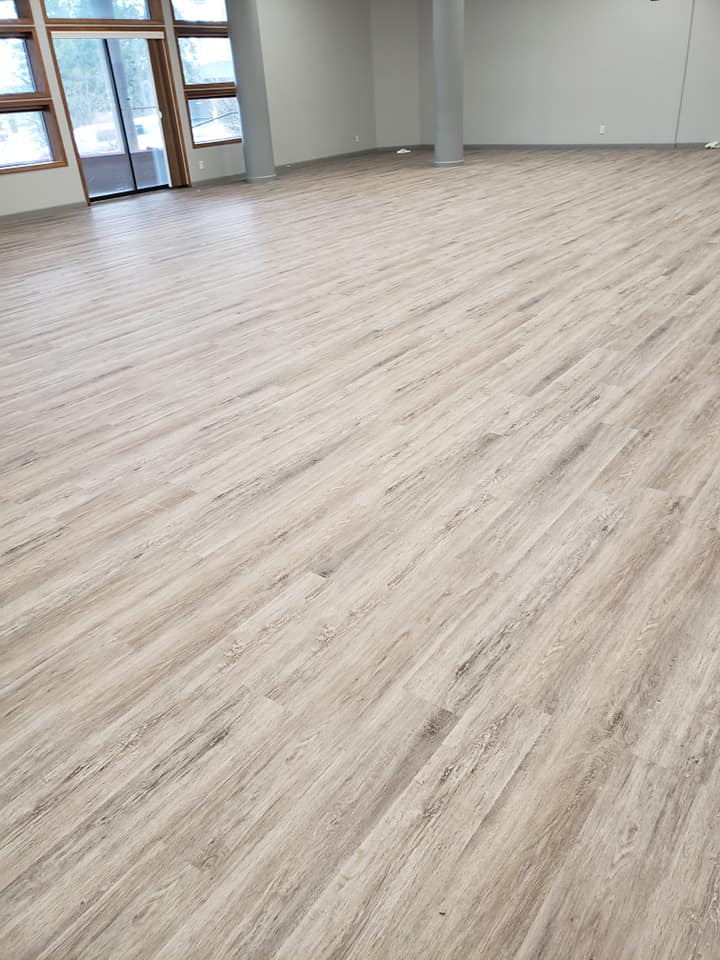
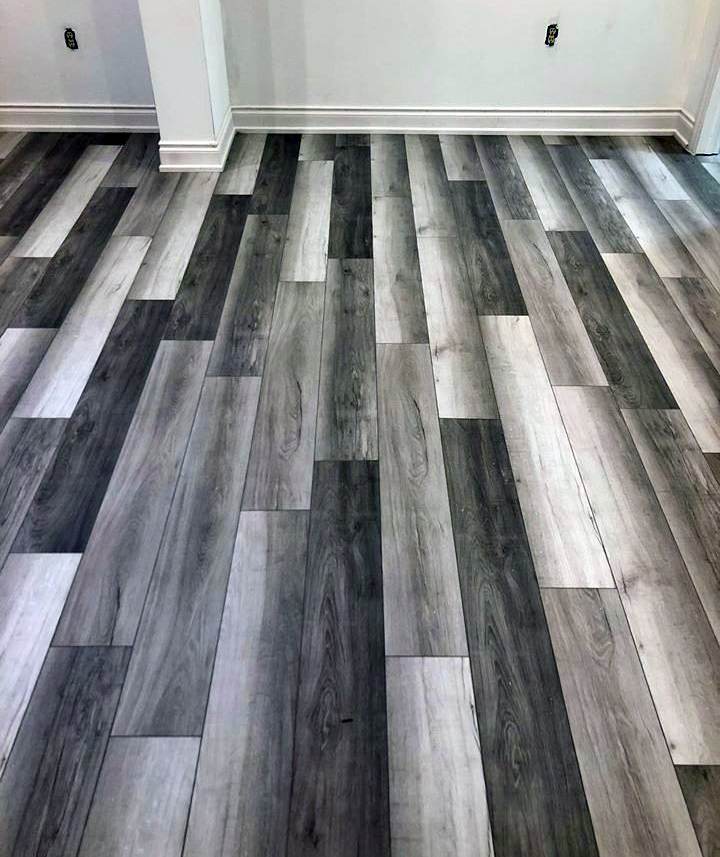
Vinyl Sheet Flooring Installation Contractors
At our company, we take pride in our vinyl sheet flooring installation contractors.
Our team is composed of individuals who are licensed and insured. They stay up to date on industry training in order to do the best work possible.
We understand that your time is valuable, so we work hard to make sure that your experience with us is as stress-free as possible.
We offer a wide range of services and are always happy to answer any questions you may have.
Contact us today to schedule a consultation!
Local Vinyl Sheet Flooring Installers
When it comes to installation, it's important to choose a team of experienced professionals who know the ins and outs of your local area.
Our vinyl sheet flooring installers have extensive experience working in a variety of conditions, with different materials, and with various inspectors and vendors.
This means that they'll be able to get the job done quickly and efficiently, without any surprises along the way.
So if you're looking for a hassle-free installation experience, our team is the perfect choice.
Contact us today to learn more about what we can do for you.
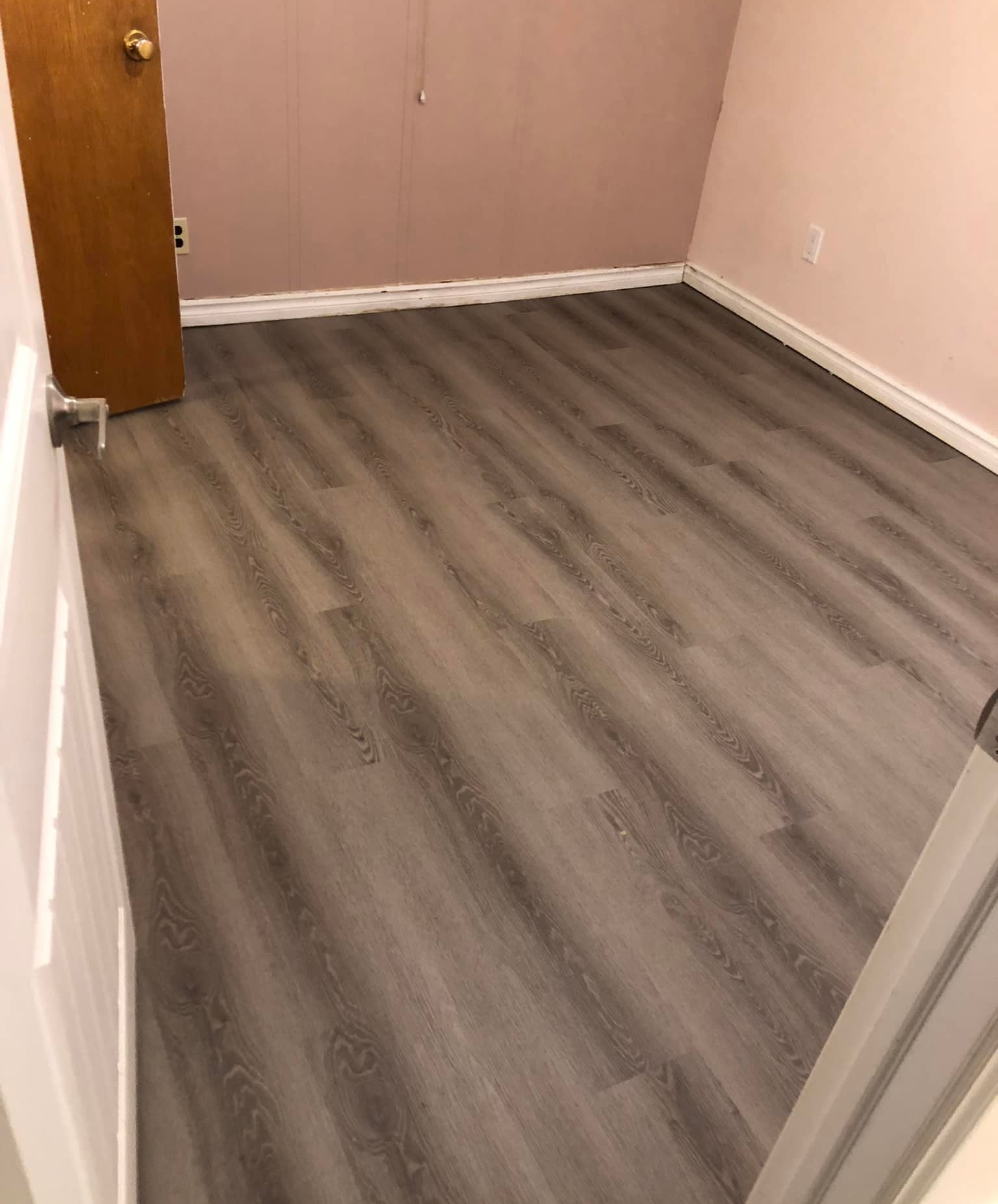
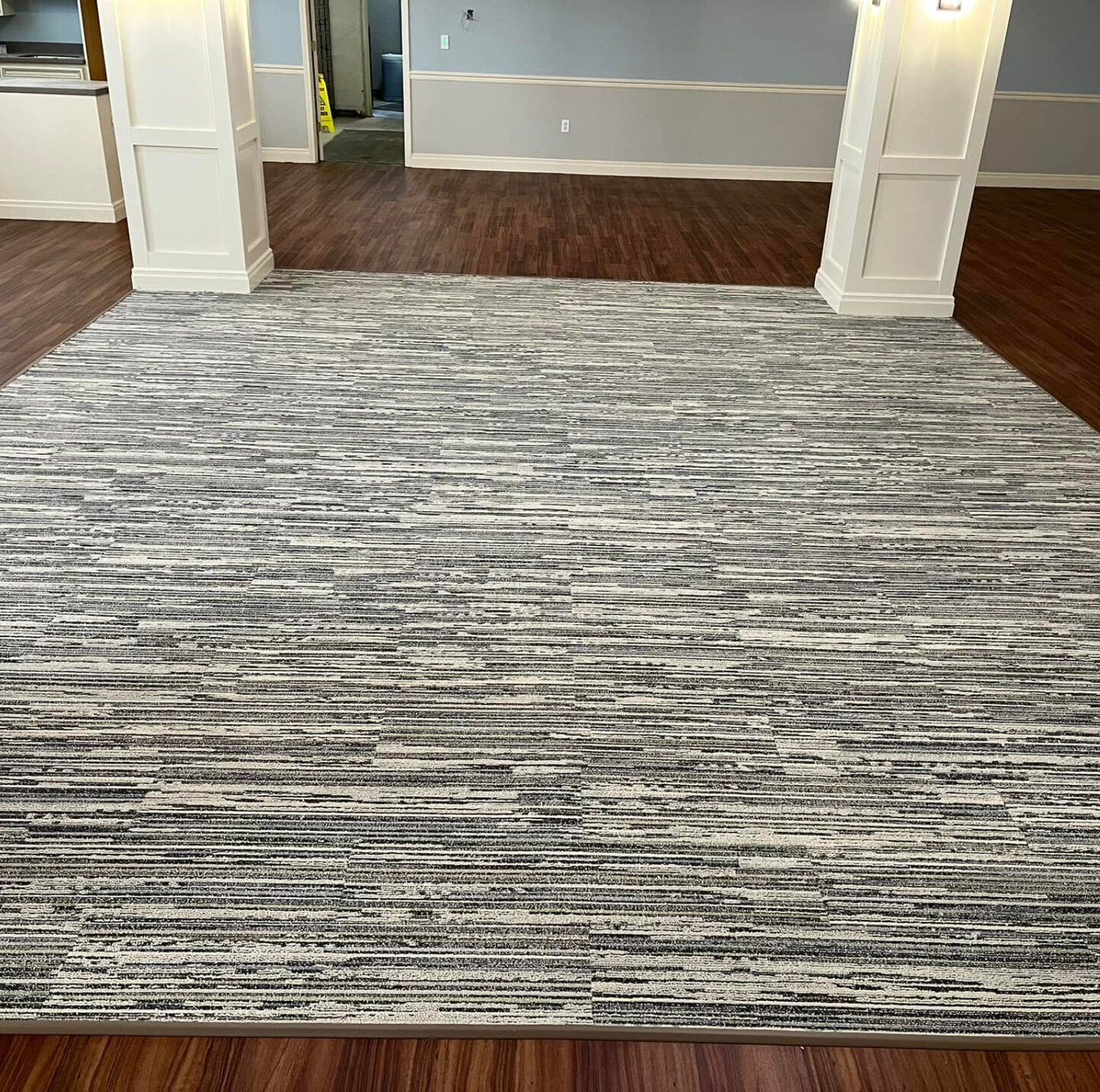
What is Vinyl Sheet Flooring?
Vinyl sheet flooring is a versatile and durable option for both residential and commercial settings.
It is available in a wide range of colors and patterns, making it easy to find a style that suits your space.
Vinyl sheet flooring is also easy to clean and maintain, and it can be installed quickly and easily.
Thanks to these benefits, vinyl sheet flooring is an increasingly popular choice for many homeowners and businesses.
Vinyl Sheet Flooring Installation Process
The process for installing vinyl sheet floors is relatively simple, though there are some crucial steps in the process that will insure success or determine failure.
We have the process down to a science - read on to learn more about how we install sheet vinyl.
Choose Your Flooring Product
Vinyl sheet comes in different thicknesses, and the thicker the sheet, the more durable it will be.
If you are installing vinyl in a high-traffic area, you will want to choose a product that is at least 8mm thick.
The second thing to consider is the texture of the vinyl. Some vinyl is smooth, while others have a embossed or textured surface.
Lastly, you'll need to decide on a color or pattern for your flooring.
Once you've chosen your product, you're ready to begin the installation process.
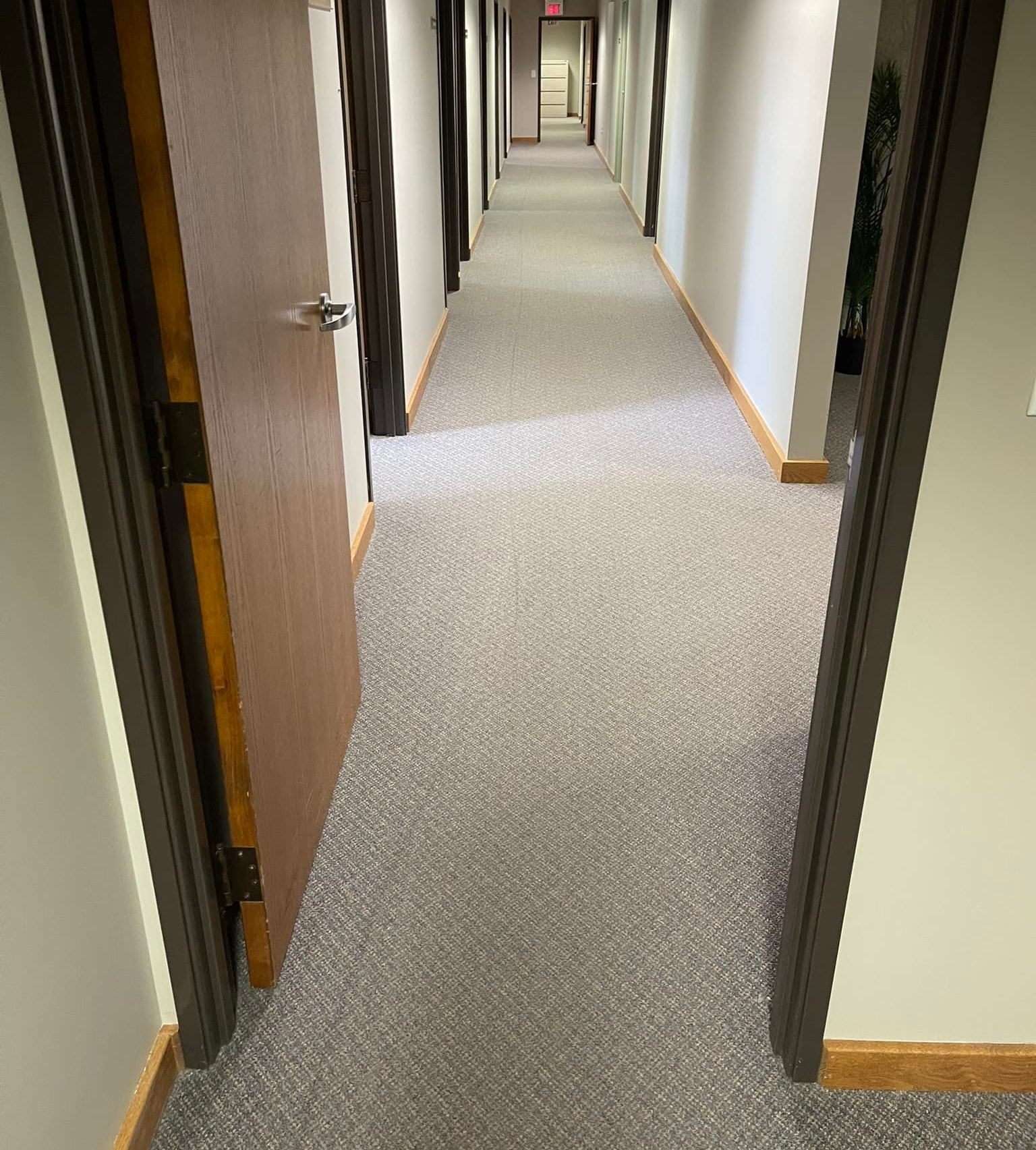
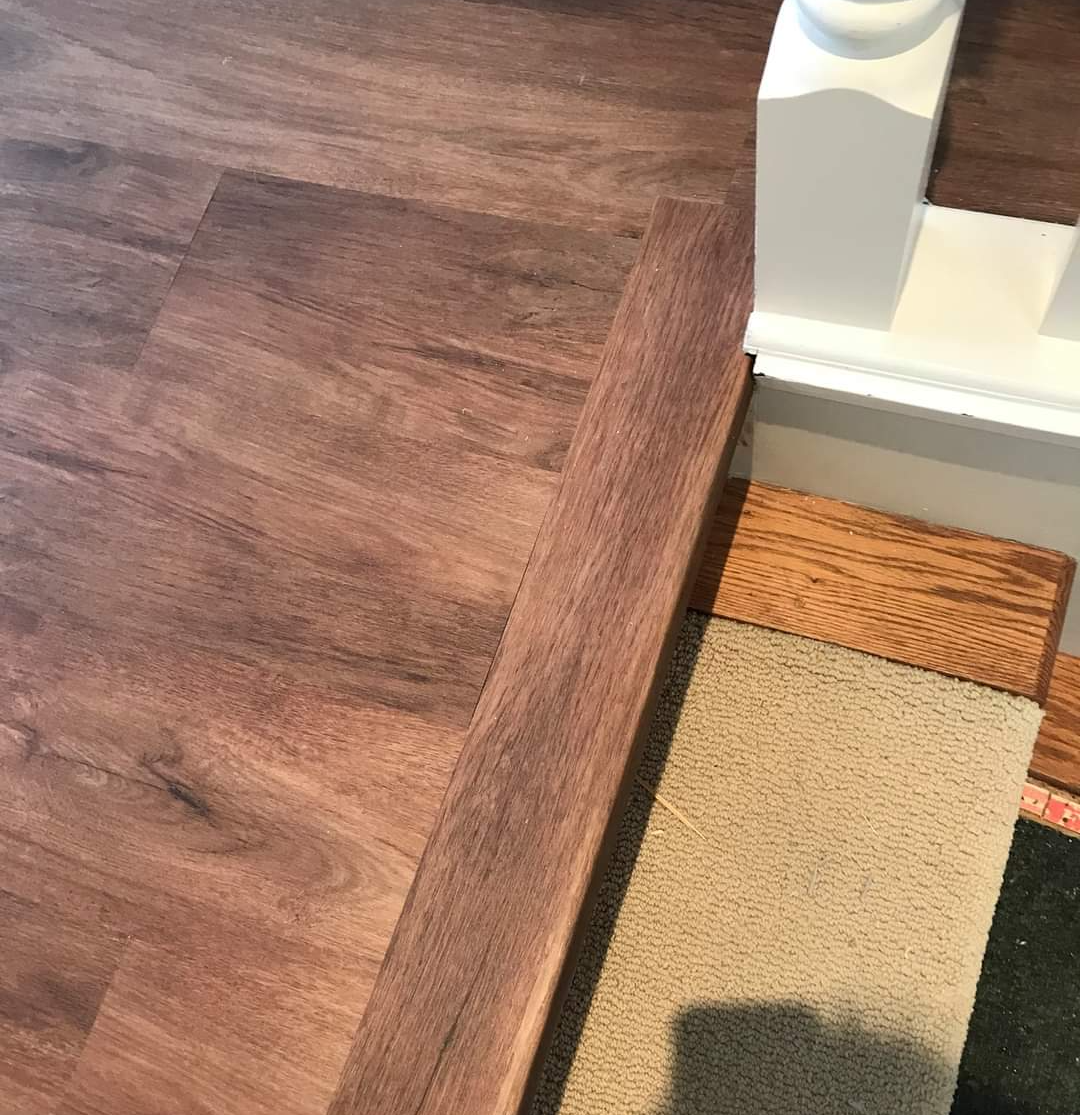
Prepare The Subfloor
The second step in the sheet vinyl install process is to prepare the subfloor.
This step is crucial, as it will ensure that your vinyl sheet flooring lasts for many years.
The first thing you'll need to do is to clean the subfloor thoroughly. Be sure to remove any dirt, dust, or debris that may be present.
Next, you'll need to repair any cracks or damage in the subfloor.
Doing this will allow for a solid foundation for your sheet vinyl installation.
Take Precise Measurements
The third step is to take precise measurements.
This is important because it will ensure that the vinyl sheet fits properly and looks good.
To take precise measurements, first measure the length and width of the room. Then, measure the doorways and other openings.
Once you have the measurements, mark them on the vinyl sheet.
Be sure to use a pencil or chalk so that you can easily erase any mistakes.
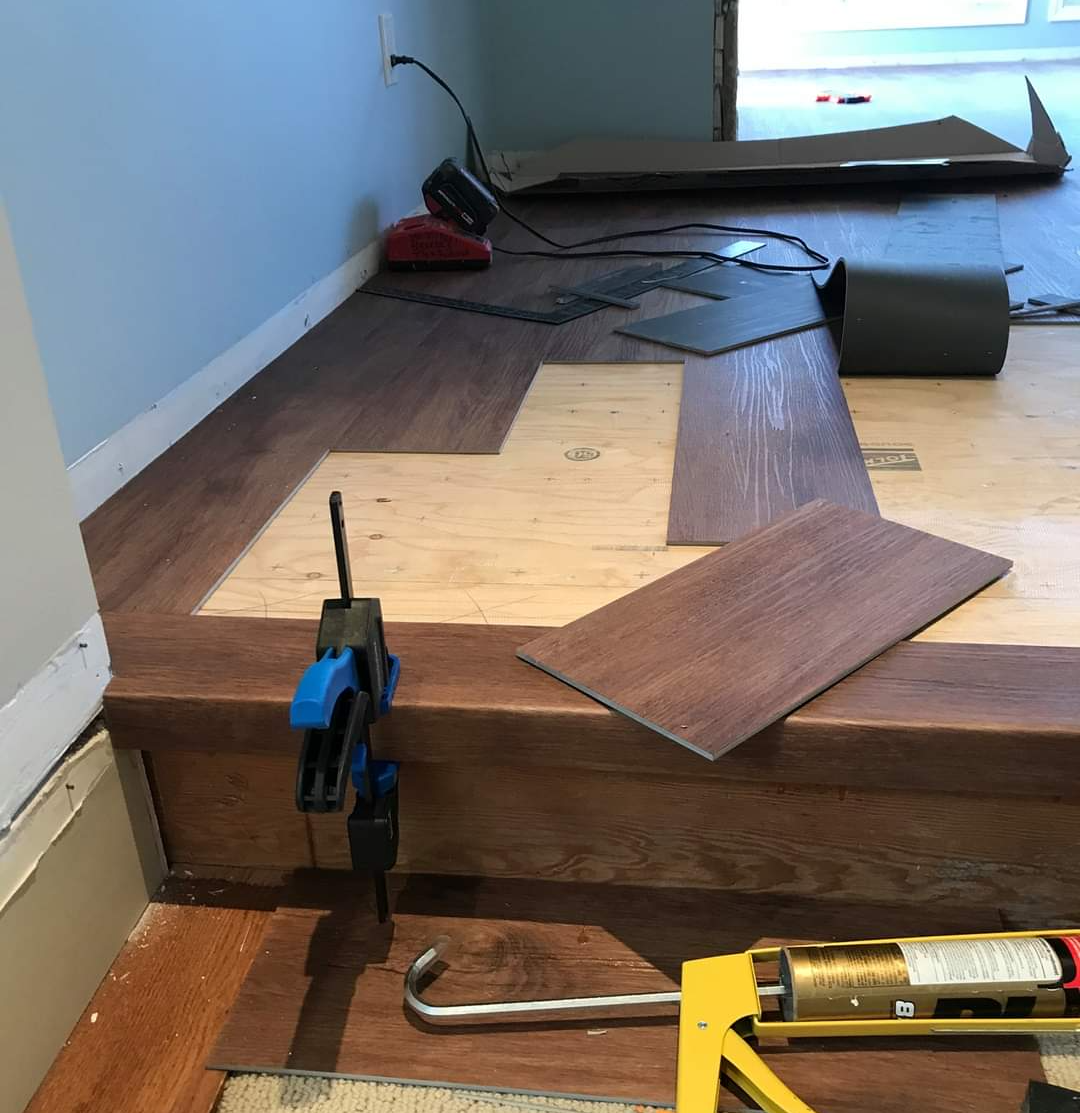
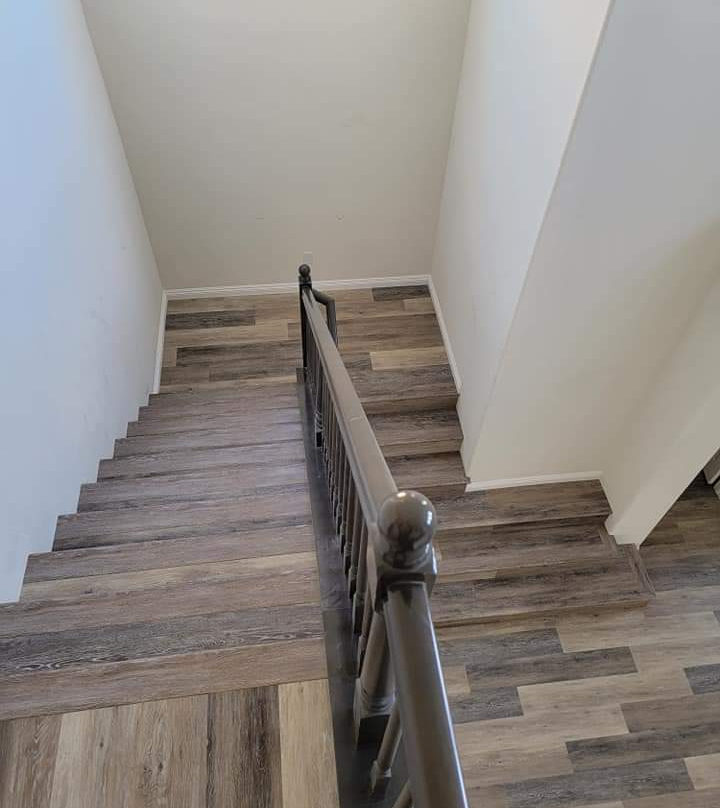
Install the Underlayment
The fourth step in installing vinyl sheet flooring is to install the underlayment.
Underlayment is a layer of material that is placed between the subfloor and the vinyl sheet.
Its purpose is to provide a smooth, even surface for the vinyl sheet to lie on and to help reduce noise.
When installing underlayment, it is important to use a good quality material and to follow the manufacturer's instructions carefully.
In most cases, the underlayment will need to be glued or nailed down before the vinyl sheet can be installed.
Cut the Vinyl
The fifth step in installing vinyl sheet flooring is to cut the vinyl. You will need a straight edge and a utility knife.
First, measure the width and length of the room.
Next, mark the center of the vinyl sheet with a pencil.
Then, using a straight edge, draw a line from one corner to the opposite corner.
Repeat this process for the other two corners.
Finally, use a utility knife to score the vinyl along these lines.
Be sure to apply firm, even pressure so that you create clean, straight cuts.
Once you have cut the vinyl sheet into four equal pieces, you are ready to install it in your room.
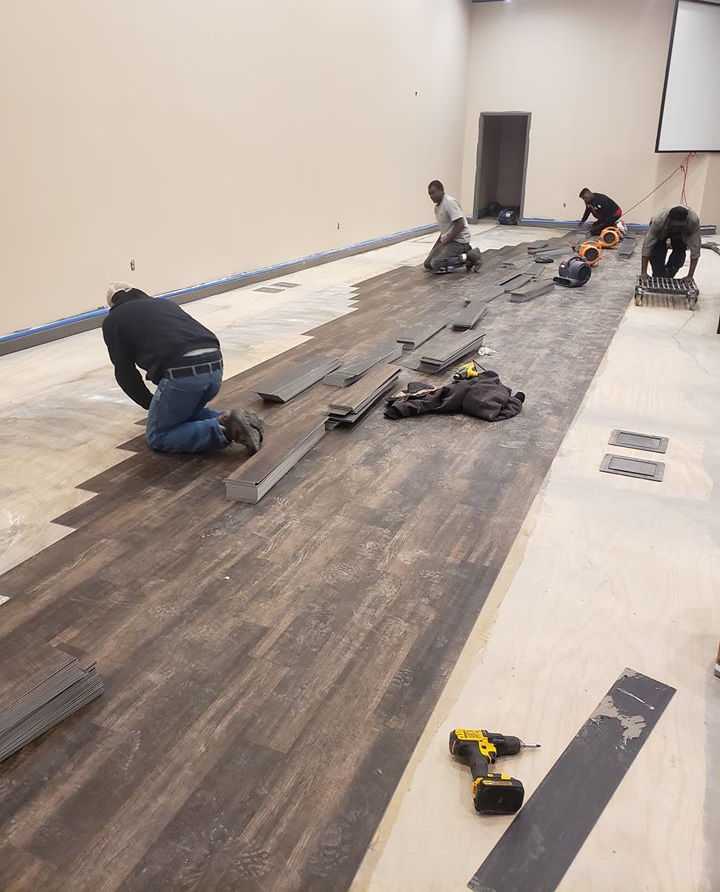
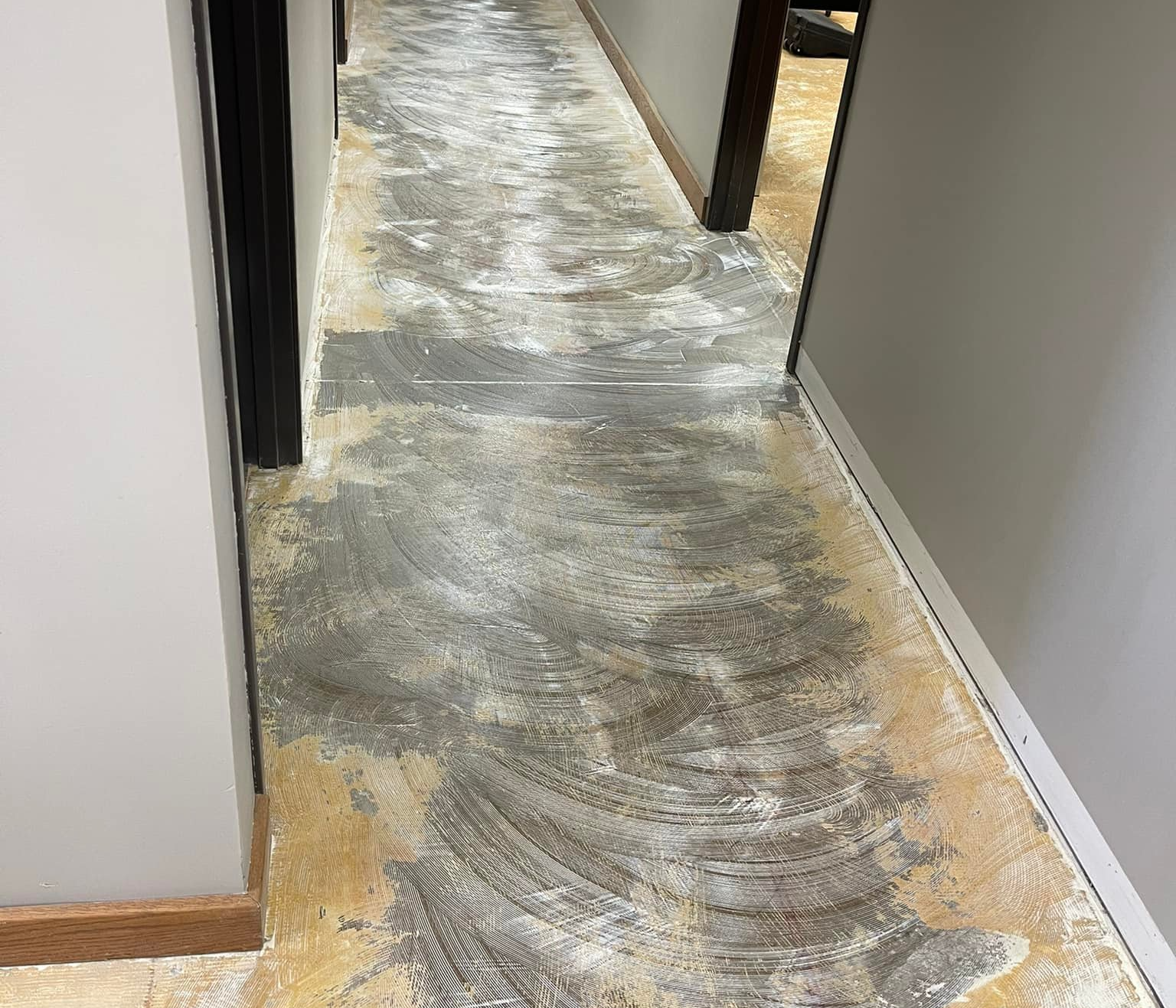
Apply the Adhesive
The sixth step in installing vinyl sheet flooring is to apply the adhesive.
You will need a special vinyl adhesive designed for use with sheet flooring.
Apply the adhesive to the subfloor using a trowel, working in small sections. Be sure to follow the manufacturer's instructions carefully.
Once you have applied the adhesive, you can begin installing the vinyl sheet.
Lay the Vinyl Sheet
The seventh step in installing vinyl sheet flooring is to lay the vinyl sheet.
Start in one corner of the room and work your way out.
Be sure to smooth out any bubbles or wrinkles as you go.
Be sure to use a roller or hand roller to smooth out any bubbles or wrinkles.
Once you have finished, you can trim off any excess material using a utility knife.
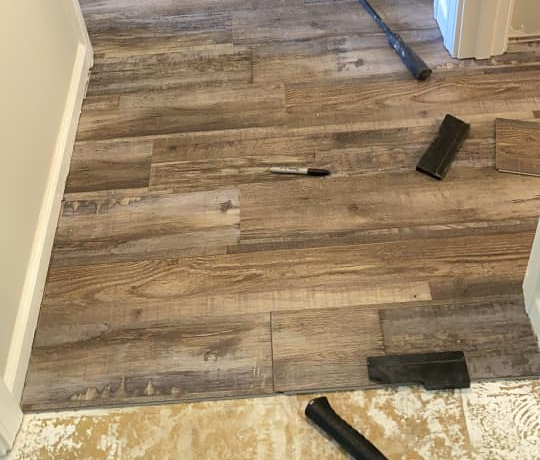
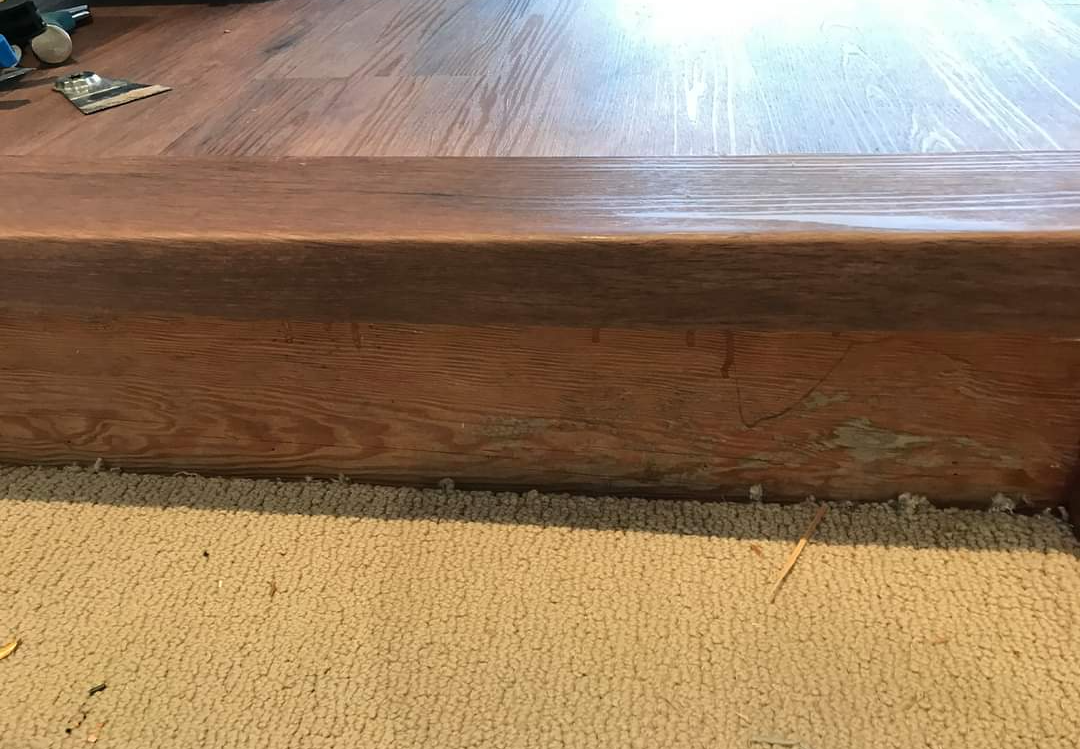
Finishing Touches
The eighth and final step in installing vinyl sheet flooring is to add any finishing touches.
This may include trimming around doorways or installing baseboard molding.
Once the finishing touches have been applied and the area has been cleaned up, it's best to wait at least 24 hours before walking on the new vinyl sheet floor.
Benefits of Vinyl Sheet Flooring
There are many benefits to vinyl sheet flooring, which is one of the reasons why it is so popular.
It is inexpensive, easy to install, and low maintenance. It is also durable and waterproof, making it ideal for high traffic areas or rooms that are prone to spills.
In addition, vinyl sheet flooring is available in a wide range of colors and styles, so you can find an option that suits your taste.
Whether you are looking for a traditional wood grain look or something more modern, vinyl sheet flooring is a great choice.
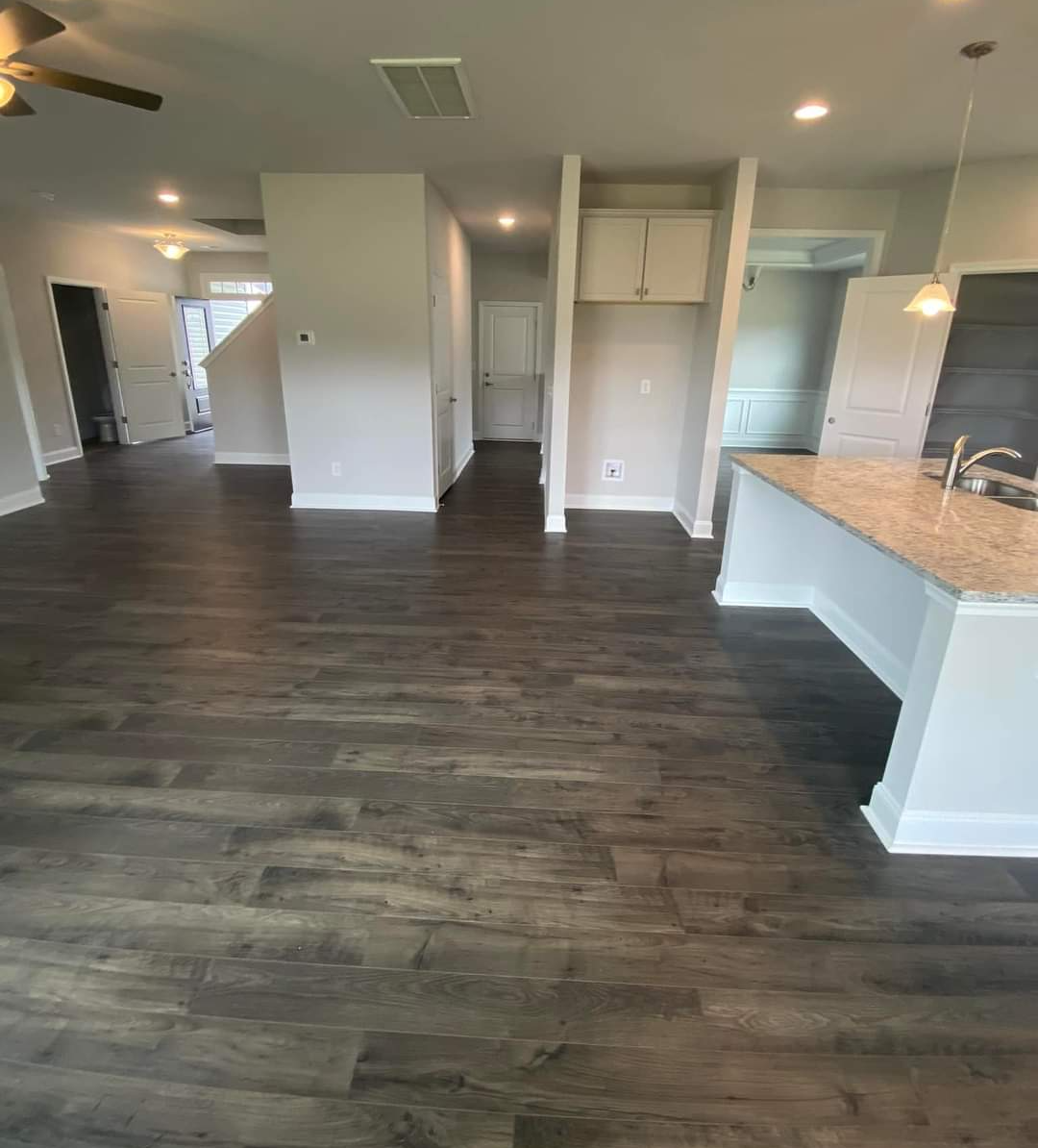
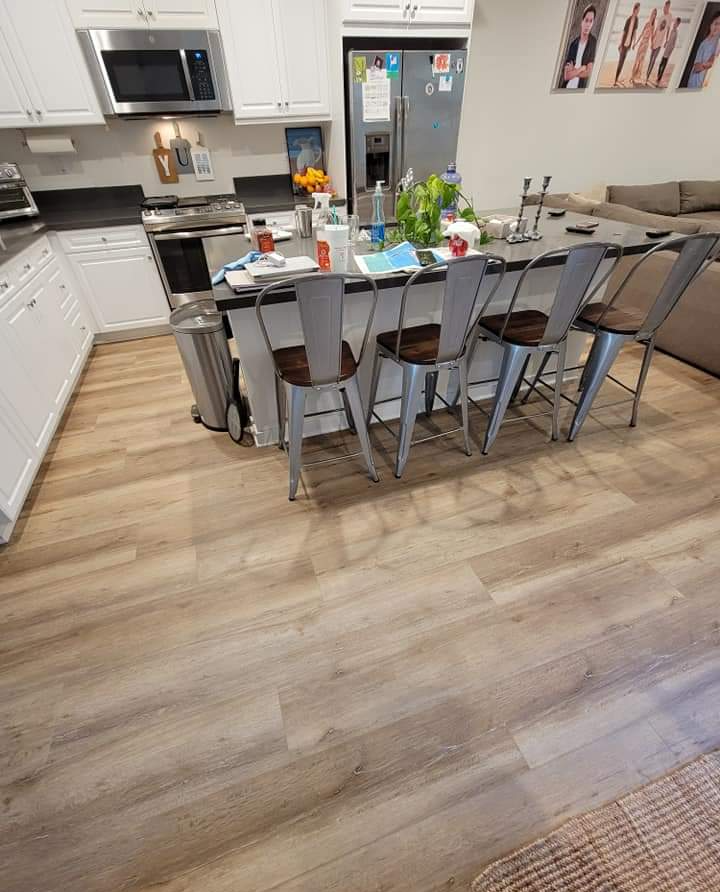
How to Maintain Vinyl Sheet Flooring
Vinyl sheet flooring can lose its luster over time if it is not properly maintained. Here are some tips for keeping your vinyl sheet flooring looking like new:
- Sweep or vacuum regularly to remove dirt and debris.
- Moisten a mop with warm water and mild soap and wipe the floor clean. Be sure to wring out the mop thoroughly before mopping to avoid saturating the floor.
- Dry the floor completely with a towel or microfiber cloth to prevent water spots.
- Periodically deep clean the floor using a commercially available vinyl cleaner or homemade solution of one cup vinegar diluted in a gallon of warm water.
By following these simple tips, you can keep your vinyl sheet flooring looking great for years to come.
How Much Does Vinyl Sheet Flooring Installation Cost?
There are a variety of variables and factors that impact the cost of vinyl sheet flooring installation.
The type of vinyl sheet flooring you choose will be the biggest factor, as some types are more expensive than others.
The size of your project will also impact the cost, as larger projects will require more materials and labor. If you have any complex patterns or cuts, that can also increase the cost.
Generally, the thicker the vinyl sheet flooring, the more it will cost to install.
However, thicker vinyl sheet flooring is also more durable and can last longer, so it may be worth the investment.
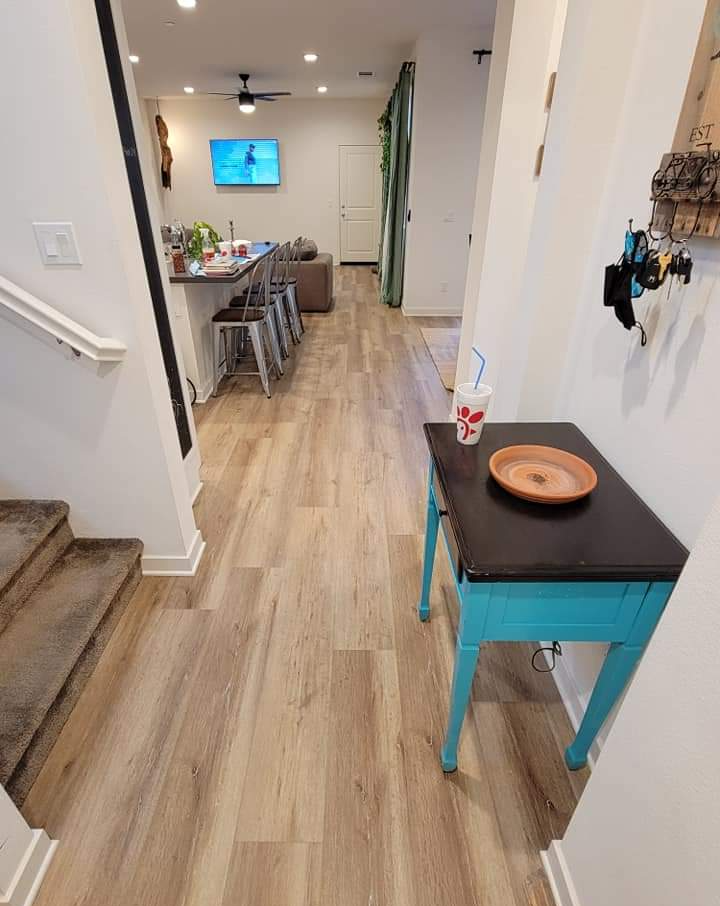
Vinyl Sheet Flooring Installation FAQs
What is the difference between vinyl and linoleum?
Vinyl is made from PVC, or polyvinyl chloride, which is a synthetic plastic.
Linoleum, on the other hand, is made from natural materials like cork dust and linseed oil. As a result, vinyl is generally more affordable than linoleum.
Linoleum is also more durable and easy to repair than vinyl; it can last for decades with proper care.
In terms of appearance, vinyl comes in a wide range of colors and patterns, while linoleum is typically available in a limited number of colors.
Ultimately, the choice between vinyl and linoleum depends on personal preferences and budget.
What lasts longer, vinyl or linoleum?
Both materials are durable and easy to maintain, but which one will last longer?
In general, vinyl is more resistant to wear and tear than linoleum. It is also less likely to stain or fade over time.
However, linoleum may be a better choice in areas that see a lot of moisture, such as bathrooms or kitchens. Because it is made from natural materials, linoleum is more resistant to mold and mildew than vinyl.
Ultimately, the best flooring material for a home depends on the specific needs of the homeowner.
How long does vinyl sheet flooring last?
When properly cared for, vinyl sheet flooring can last for years.
The key to longevity is preventing damage from water and sunlight.
Regular sweeping and mopping will help to keep the surface clean and free of dirt and debris. In addition, using mats and rugs at entryways will help to protect the floor from moisture.
And finally, keeping the blinds closed during sunny days will help to prevent fading. With proper care, vinyl sheet flooring can be a lasting investment in your home.
What's a good thickness for vinyl sheet flooring?
The thicker the vinyl, the more durable it will be.
However, thicker vinyl can also be more expensive and may require professional installation.
For most applications, a thickness of around 3-4mm is sufficient.
This thickness will provide good durability and resistance to wear and tear, without adding significant cost or difficulty to the installation process.
How do I deal with seams?
First, we clean the area where the seam will be located to remove any dirt or debris.
Next, we apply a bead of clear sealant along the length of the seam.
Once the sealant is dry, we place a strip of reinforcing tape over the top. This tape not only provides additional strength, but it also helps to prevent the sealant from cracking or peeling over time.
Finally, we apply another layer of sealant over the top of the tape. This two-step process helps to create a strong, durable seam that will withstand years of foot traffic.
What adhesive do you use for vinyl flooring?
There are a few different types of adhesives that can be used, but not all of them will work with every type of vinyl.
For example, pressure-sensitive adhesives are one of the most popular options for DIY installations, but they will not work with all kinds of vinyl.
Reach Out For a Free Quote
Send us a message using the form below, and we’ll get back to you as soon as we can.
We will get back to you as soon as possible
Please try again later
Copyright © 2015-2022 JD Flooring Installers | All rights reserved
Contractor Website by Curated Leads
